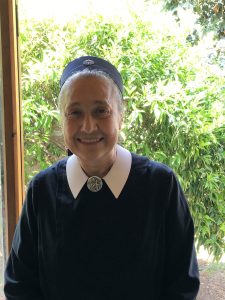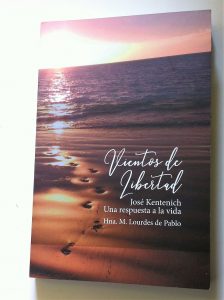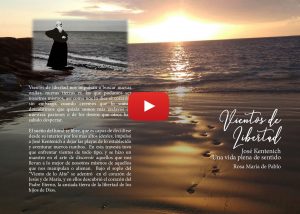 Interview with
Interview with
Sister M. Lourdes de Pablo
Sister M. Lourdes is from Spain and lives in Chile. She took the initiative to write a biography of Father Joseph Kentenich out of a central idea: the idea of freedom. She explains what motivated her.
From what perspective did you write this book?
Freedom, on the one hand, is a very central theme in Schoenstatt’s spirituality; on the other hand, it is a challenge that is sometimes tackled in today’s culture in a way that does not accord with our view. I wanted to try to answer the question of true freedom.
Who is the target audience?
So far I have discussed the subject with adolescents and adults, so I have tried to choose a modern, normal language that everyone can understand.
Why did you choose the theme of freedom to tell the story of Father Kentenich?
I believe that freedom is a very complex issue that deeply haunts people. Man wants to be free by nature. Why? Because we are called to love. We are created in the image and likeness of God and God is free because he is love. Only the person who loves is free.
How is the message of Father Kentenich valid even in the current crisis of the Church?
Father J. Kentenich was revolutionary because he also considered human emotional attachments. The topic of irrationality plays a fundamental role in the problems that we experience in the Church. I believe the church has not taken this seriously enough. Father Kentenich says that one can approach true freedom only from love, because love is able to integrate all layers of the personality. If you love another person, you love him from the inside; you love him “with all your strength”.
What is the message of the Blessed Mother at this time?
Therefore, for Father Kentenich, the figure of the Mother of God is crucial: because the Blessed Mother is totally human. If she can work in a person’s life and it does not remain a theory, if there is a personal encounter with her, then human fullness grows. This is what the shrine which we call our home stands for. With the Blessed Mother in the shrine the person is protected. There is a text by Father Kentenich about the covenant of love that I love: when a person finds peace in the heart of the Blessed Mother, then that person becomes truly free, truly human, and also God-like.
Father Kentenich gave three clues. First, to allow the Mother of God to watch over us. Pope Francis also says: The mother knows us better than we know ourselves; she knows all my weaknesses, but she loves me. Even the mothers of criminals who have done terrible things always find a reason to justify their child. To a mother we can come with all our injuries, with all our wounds, with our sadness. And what happens? When we arrive and give it all without hiding it, it makes us authentic and real. She understands me, she knows that I am weak and small…

